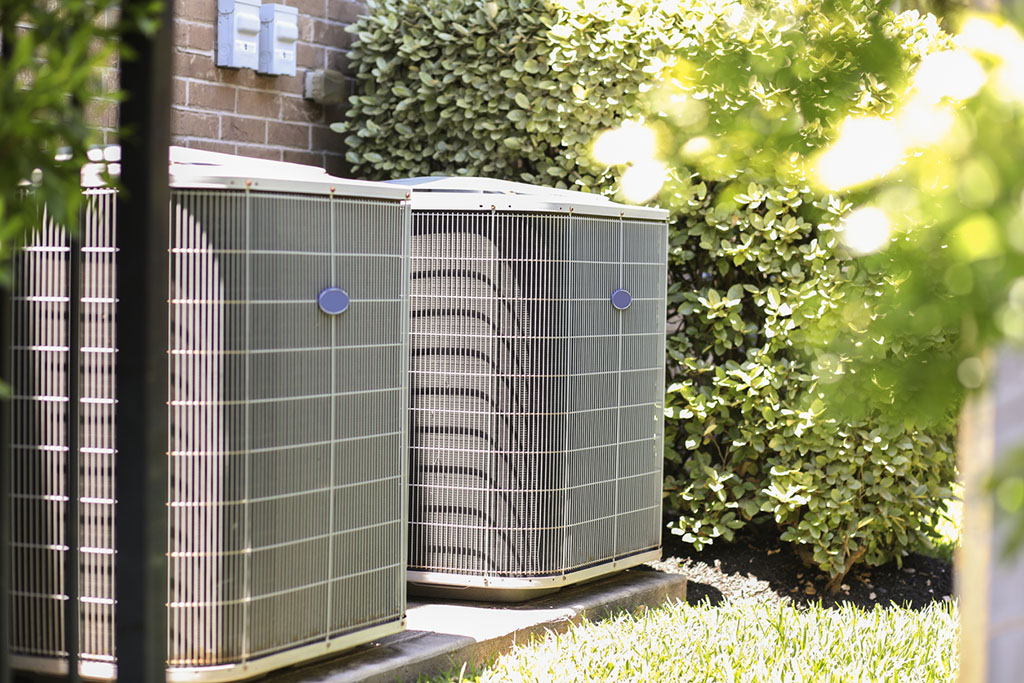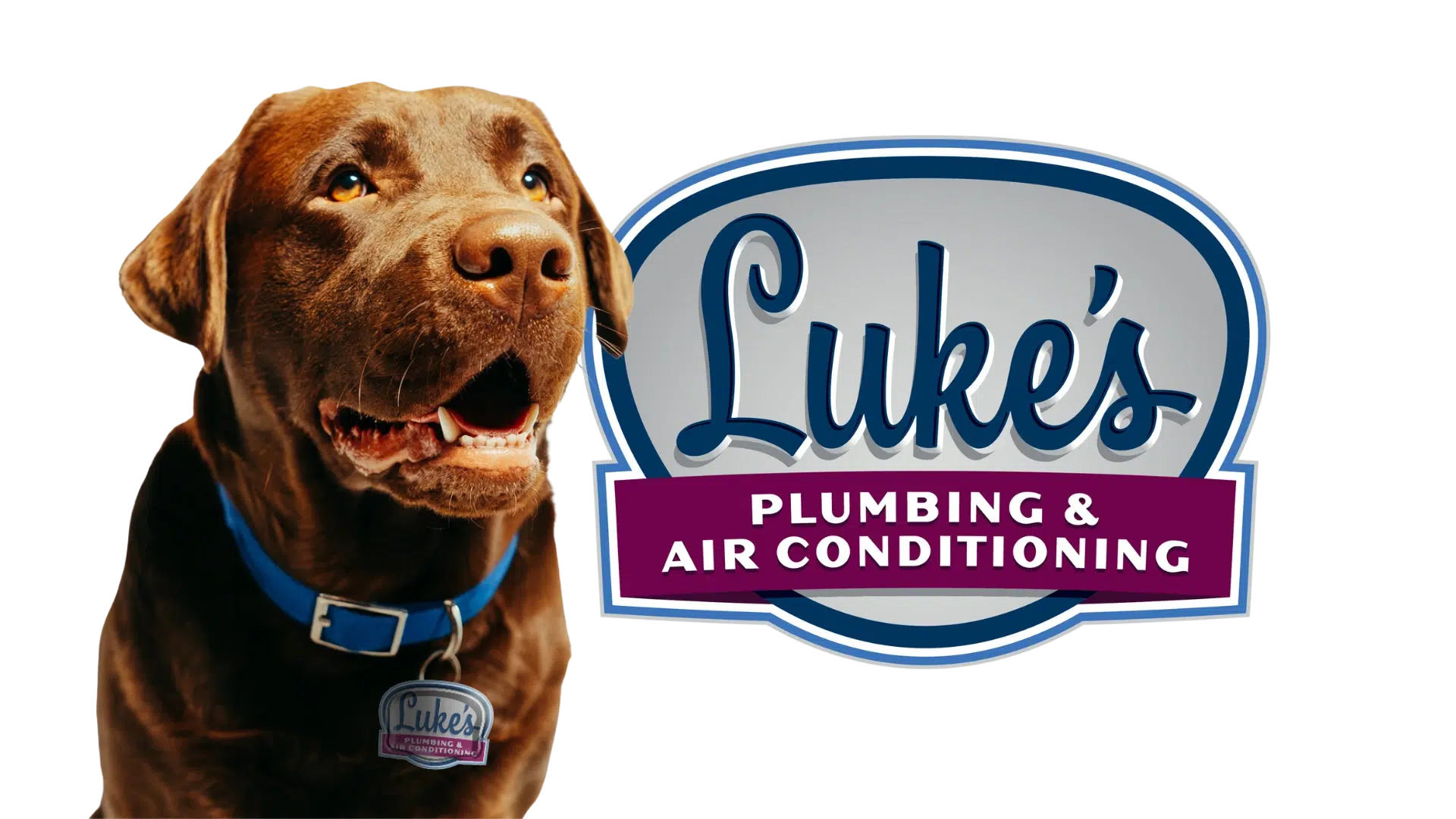What Size Air Conditioner Do I Need in Houston?
Servicing Houston, TX For Over 30 Years

When it’s time for a new air conditioner in Houston, TX, most homeowners focus on price tags and energy-efficiency ratings. Both matter, but they’re only part of the story.
The size of your air conditioner is just as important, if not more so, when it comes to keeping your home comfortable and your utility bills under control.
The right-sized AC doesn’t just mean “big enough to cool my house.” It means properly matched to your square footage, insulation, ductwork, and even the Houston climate.
Let’s break down why size matters, how to figure out what you need, and how our Houston HVAC company, Luke’s Plumbing & Air Conditioning, can help.
Why Does AC Size Matter?
Choosing the wrong size air conditioner can cause more problems than you’d expect.
- Energy efficiency: A unit that’s too small runs constantly, driving up utility bills. A system that’s too big cycles on and off, wasting energy and stressing components. Regular AC maintenance helps, but the foundation of efficiency is proper sizing.
- Comfort: Houston summers are hot and humid. The right-sized system keeps the temperature even and pulls moisture from the air. An oversized unit may cool quickly but won’t dehumidify effectively, leaving your home clammy.
- System lifespan: Constant short cycling or overwork wears out parts faster. That means more frequent AC repairs and an early replacement.
- Noise levels: A mismatched system often runs loud, which is hardly the peaceful background hum you want while relaxing at home.
How Is AC Size Measured?
Air conditioners are measured in BTUs (British Thermal Units) or tons. One ton equals 12,000 BTUs of cooling power per hour. As a rule of thumb, you’ll need 20 to 25 BTUs per square foot of living space.
Here’s a quick estimate:
- 1,000 sq. ft. home: about 24,000 BTUs (2 tons)
- 1,500 sq. ft. home: about 36,000 BTUs (3 tons)
- 2,000 sq. ft. home: about 48,000 BTUs (4 tons)
This formula is just a starting point.
Factors That Impact the Right Size
Square footage is only one piece of the puzzle. A professional load calculation accounts for:
- Ceiling height. Higher ceilings mean more air to cool.
- Insulation quality. Older homes with poor insulation need more cooling power.
- Windows. The number, size, and orientation of windows affect heat gain.
- Sun exposure. A shaded home may need less cooling than one baking in direct sunlight all afternoon.
- Lifestyle factors. Do you cook often? Have multiple people working from home? Extra heat sources matter.
- Ductwork. Leaky or undersized ducts can make even the perfect AC unit struggle.
This is why online calculators can mislead you. A professional assessment ensures you’re not stuck with the wrong unit.
What Happens if You Oversize or Undersize?
Too big: Your home cools quickly but doesn’t stay comfortable. Humidity remains high, cycling wears out the system, and you’ll likely face early AC replacement.
Too small: Your system runs constantly, struggling to meet demand. You’ll notice uneven cooling, high energy bills, and frequent AC repair needs.
Neither option saves money in the long run.
Choosing the Right System for Houston Homes
In addition to size, Houston homeowners should consider system type.
- Central air conditioning: Ideal for whole-home comfort, especially if you already have ductwork in place. Learn more on our air conditioning services page.
- Ductless mini-split systems: Great for homes without ducts, new additions, or zoned cooling needs. Check out our ductless cooling options.
Whichever system you choose, Luke’s can guide you through AC installation that is tailored to your home and your needs.
How We Size Your AC Correctly
At Luke’s, we don’t guess. Our technicians perform a Manual J load calculation, an industry-standard method that evaluates every factor of your home’s cooling load. This ensures your unit is sized correctly for Houston’s climate, provides balanced comfort in every room, and runs efficiently to save you money. It also prevents premature replacement costs that come with the wrong-sized unit.
Signs It May Be Time to Resize Your AC
If you already have a system but suspect it’s the wrong size, watch for these red flags:
- High humidity indoors even when the AC runs
- Hot and cold spots throughout your home
- Short, frequent cooling cycles
- Utility bills that don’t match your usage
- A system that seems to break down often
In these cases, it may be time for a professional evaluation and possibly an AC replacement.
Houston Climate and AC Sizing
Houston has unique demands when it comes to cooling. The combination of long summers, extreme humidity, and periods of heavy rainfall makes it critical to have the right-sized system. A unit that works fine in a drier climate may not hold up to Houston’s conditions. That’s why working with local professionals who understand the city’s weather patterns is essential. The goal is not just to lower the thermostat but to create a home environment that is consistently comfortable in every season.
Efficiency Features to Consider
Sizing is step one, but choosing the right features can make your investment even smarter. Ask about:
- Variable-speed compressors, which adjust output instead of running at full blast
- Smart thermostats for better temperature control
- Systems with high SEER ratings for improved efficiency
- Built-in dehumidification features that handle Houston’s sticky summers
These upgrades, combined with correct sizing, give you the best mix of comfort and cost savings.
Get Expert AC Services in Houston, TX
Whether you’re considering new AC installation, need ongoing AC maintenance, or just want advice on air conditioning services, Luke’s Plumbing & Air Conditioning is here to help. Our team takes the guesswork out of choosing the right system so you can stay cool and comfortable all summer long.
Ready to size your next air conditioner the right way? Contact Luke’s today to schedule an appointment with our HVAC experts.
Call (713) 686-7000




